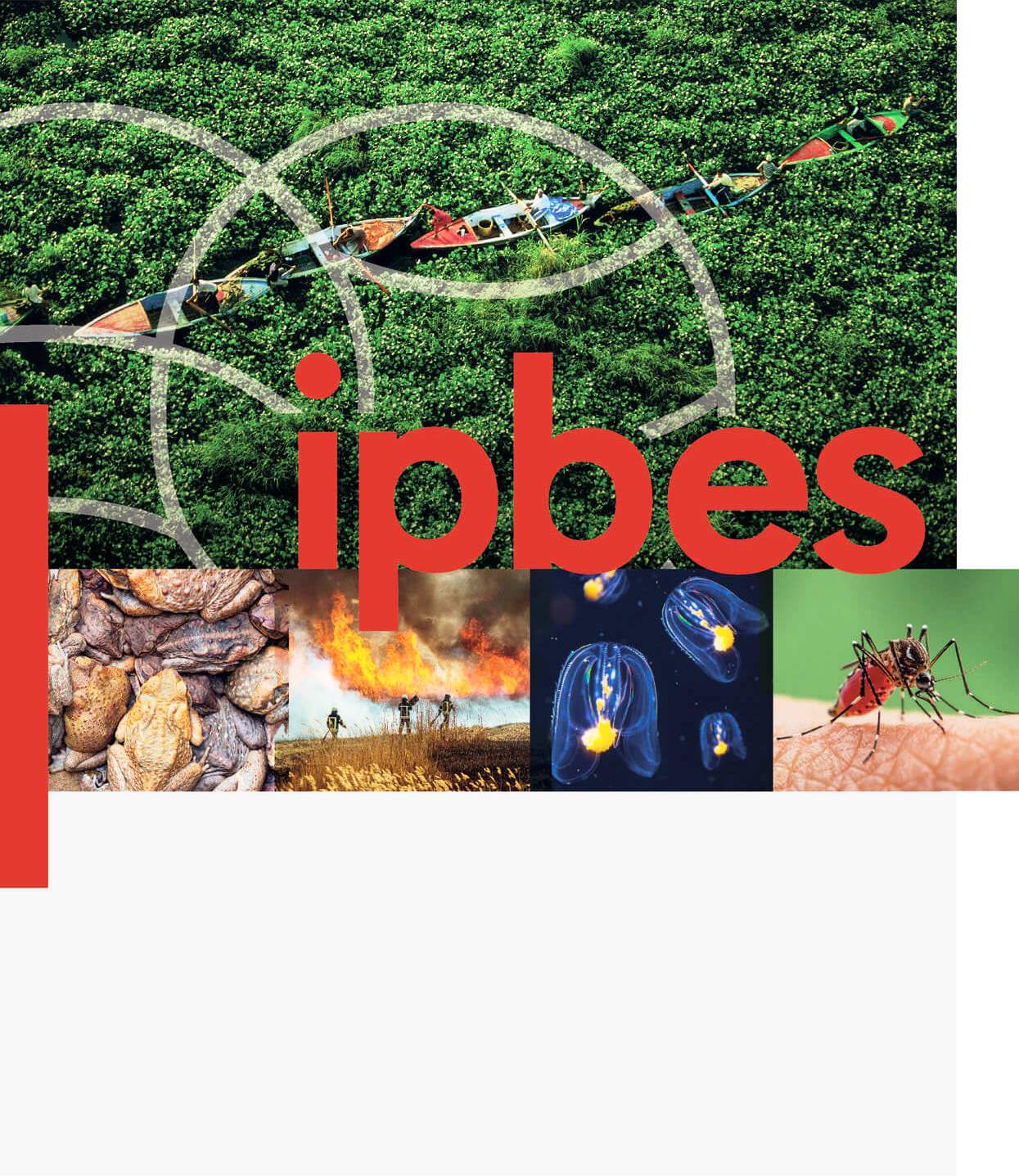Summary Report
The Thematic Assessment of Invasive Alien Species and their Control
The Intergovernmental Science-Policy Platform on Biodiversity and Ecosystem Services (IPBES) is an independent intergovernmental body comprising over 143 member Governments and States. Established by Governments and States in 2012, IPBES provides policymakers in Governments, the private sector and civil society with scientifically credible and independent up-to-date assessments about the state of knowledge regarding nature and the contributions it provides to people, as well as options for actions to protect and sustainably use these vital natural assets as better evidence-informed policy decisions and action at the local, national, regional and global levels. The Assessment of Invasive Alien Species and their Control was initiated by a decision from the IPBES Plenary (decision IPBES-6/1) at its sixth session (IPBES 6, Medellin, Colombia, 2018), based on the scoping report (annex III to decision IPBES-4/1) approved by the Plenary at its fourth session (IPBES 4, Kuala Lumpur, Malaysia, 2016). The Assessment was produced in accordance with the procedures for the preparation of the Platform’s deliverables set out in annex I to decision IPBES-3/3.
The Thematic Assessment of Invasive Alien Species and their Control, or “Invasive Alien Species Assessment” in short, is part of a series of reports whose production was initiated during the “first work programme of IPBES, 2014-2018” and concluded during the current “IPBES rolling work programme up to 2030”. The Invasive Alien Species Assessment has been carried out for 4 years by a multidisciplinary team of 86 selected world experts from all regions of the world (from 49 countries), including early career fellows, assisted by about 200 contributing authors. More than 13,000 scientific publications were analyzed as well as a substantive body of Indigenous and local knowledge. Its 6 chapters were accepted, and its summary for policymakers was approved, by the IPBES Plenary (IPBES 10, Bonn, Germany, 2023), composed of 143 member States at its tenth session held from 28th August to 2nd September 2023 in Bonn, Germany.
The Invasive Alien Species Assessment provides the best-available evidence, critical analysis and options for governments, civil society, Indigenous Peoples and local communities, the private sector and all those seeking to address the issue of biological invasions. The Assessment is also expected to support sharing of information within and across countries and capacity building globally. It is our sincere hope that this Assessment will support the implementation of the Sustainable Development Goals of the 2030 Agenda for Sustainable Development (especially Goal 15) and form a significant contribution to the implementation of the Kunming Montreal Global Biodiversity Framework of the Convention on Biological Diversity, and especially of its Target 6.
Prof. Dr. Wycliffe Wanzala, PhD, AMATINER, MACSE, MISE, FASI. was amongst the 86 selected world experts as a Lead Author with a special focus on Indigenous and local knowledge of Indigenous Peoples and Local Communities.

